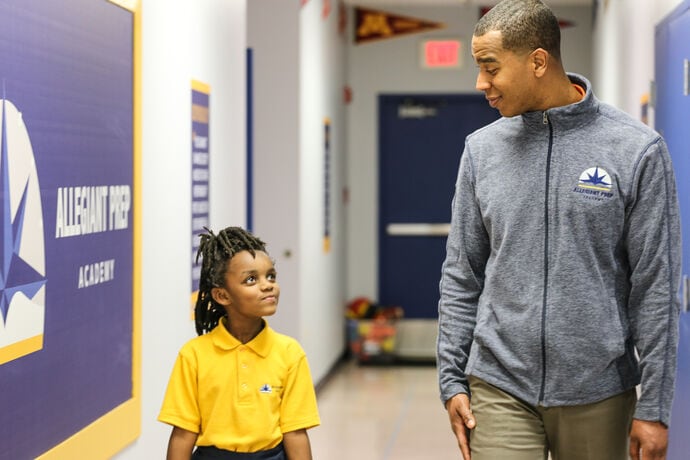A New Moment For Equity: School Leaders Share Action Steps

August 4, 2020
We know what inequity looks like and sounds like. Just listing the following words will conjure up real brushes with inequity in some redundant and in some novel ways due to the moment we are in: policing, technology, public health, comorbidity, food, transportation, essential, and eviction. These same words can often fuel and remind us of the unique privilege and opportunity we have to meet this moment with empathy, collaboration, and resilience.
Back in the spring, as part of a larger multi-leveled strategy that engaged teachers and students directly, our Corps Member Development team believed it was also necessary to call on the perspective of our city’s school leaders. We conducted multiple empathy interviews to learn how these leaders were making meaning, coping, and serving the needs of their communities in these unprecedented times. The following ideas represent choices school leaders had on their minds as they imagined equity in the coming school year, centering on the voices, needs and experiences of their students.
1. Focus on addressing racism
This choice has not changed and cannot change because COVID-19 has not shifted preexisting realities in our community. Right now, there is an ongoing and very public discussion on the value of Black and Brown bodies in nearly every sector of our society. And people of color are watching in real time as their worth is both defended and disputed.
For India Hui, executive director of Thrival Indy Academy, the back-to-back murders of Black men drove her to this work years ago. India asked what she could do to be a source of healing amid great pain and trauma. As some school leaders considered their unconscious perpetuation of racism, they wondered aloud what certain school-based roles communicate to their student population about their worth—maybe they could exchange deans of discipline for counselors in order to meet students’ underlying needs beyond addressing their behavior.
2. Weave wellness into the personality of schools
A school leader under these present circumstances must constantly consider the wellbeing of their body, the bodies of their team, of their students, and their students’ families—that’s a lot!
This means that a school leader must have a certain level of comfort with their own wellness and building a team that understands and voices their needs as well. It also means building rituals and systems for valuing wellness. For example, establishing a weekly routine like a Wellness Wednesday that holds space for reflection and builds the emotional capacity of the school community.
In opening Believe Circle City High School this fall, Founder and Executive Director Kim Neal (St. Louis ‘02) seeks to lean into leadership that deeply empathizes with the nuanced situations of her students’ families and her team. At the same time, she is exploring solutions that seek to minimize ways in which the stress and anxiety of the pandemic, and impacted school structures, negatively influence student experiences and learning outcomes.
3. Decenter schools as the place of learning and reconsider the end user
It would be naive to believe that the learning that is necessary for life happens primarily at schools. Chrystal Westerhaus, founding principal of Avondale Meadows Middle School, points out that whether or not a student logged into their e-learning one day, they are immersed in lessons—positive and negative examples—in the subject areas of coping and emotional resilience, physical health, employment, and finances.
Students are resilient and are constantly learning these lessons from their caretakers. This may mean that a school should put a greater emphasis on how they support the needs of the adults who are caring for students. Rick Anderson (Memphis ‘11), founder & head of school of Allegiant Prep Academy, began celebrating and shouting out families exemplifying his school’s core values as the days stretched into weeks into months.
4. Honor everyone’s humanity under pressure
One final takeaway from these empathy interviews is that everyone in the education ecosystem in our community lives under the stress of serving children well. When families were met with the work of distance learning, they did not want to fail their students by potentially harming their future opportunities. School leaders and teachers held this same anxiety as school was done differently for the first time in centuries nearly overnight. And as our community faces reopening together the stakes feel unmistakably high.
We know what inequity looks like and sounds like but the path toward equity is still intelligible. Unprecedented times do not obfuscate what’s possible for our community, they only redirect our energies toward what matters.
Richard Morris currently serves as Director, Leadership Development on the TFA Indianapolis regional team.


